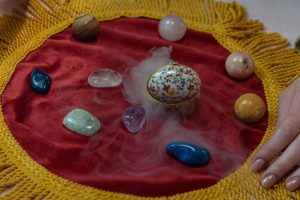Coping with Heartbreak
It’s not your fault.
I know it’s natural to want to blame yourself when a relationship ends or a loved one hurts you. But the truth is, it’s not your fault. You can’t control how someone else feels or behaves. You can only control your own actions and reactions. The most important thing to remember is that you did the best you could with the information and resources you had at the time.
All of this is a part of life.
Nobody is immune to pain and suffering. Heartbreak is a universal experience that we all go through at some point. It’s okay to feel sad, angry, confused, or any other emotion that comes up for you. You don’t have to hide or suppress your feelings. Acknowledge them, honor them, and give yourself permission to grieve.
It won’t break you…but it will teach you a lot.
Despite how painful heartbreak can be, it won’t break you. You are stronger than you think. In fact, going through heartbreak can teach you a lot about yourself and what you want out of life. Use this experience as an opportunity for growth and self-reflection. What can you learn from this situation? How can you use this knowledge to make better choices in the future?
You’re not unlovable.
One of the most devastating things about heartbreak is the fear that you’ll never find love again. But that’s simply not true. You are a worthy and lovable person, no matter what anyone else says or does. Don’t let one bad experience define you. Keep an open heart and mind, and trust that the right person will come along when the time is right.
Betrayal by a Trusted Person
Expecting the best from someone.
When we trust someone, we expect the best from them. We assume that they will act with our best interests in mind. So when that trust is broken, it can shatter our sense of reality. We may feel deceived, hurt, and angry. This is a completely normal reaction. Allow yourself to feel these emotions, but also remember that not everyone is trustworthy.
Shattered trust and disbelief.
Betrayal can leave us feeling stunned. We may ask ourselves, “How did I not see this coming?” or “Why did this happen to me?” It’s important to remember that betrayal says more about the other person than it does about you. They made a choice to betray your trust, and that choice reflects their character, not yours.
Blaming oneself for the betrayal.
It’s easy to fall into the trap of self-blame after being betrayed. We may think that we were too trusting, too naive, or that we somehow deserved to be hurt. But this kind of thinking is unfair to ourselves. We are not responsible for other people’s actions. We can only control our own behavior.
Learning to identify red flags.
Going through betrayal can help us become more aware of red flags in relationships. We may start to notice warning signs that we overlooked in the past. Use this newfound knowledge to protect yourself in future relationships. Be cautious, but also be open to trusting others. Not everyone is a betrayer.
Moving on from the betrayal.
Healing from betrayal can take time. You may need to process your emotions, seek out support from friends or a therapist, and practice self-care. But eventually, you will be able to move on from the betrayal. Remember that healing is not linear, and it’s okay to have setbacks. Be kind to yourself, and trust that you will get through this.
Overcoming Painful Experiences
Breaking down before rebuilding.
When we experience something painful, it’s natural to feel overwhelmed and helpless. It’s okay to take a step back and allow ourselves to feel the full range of emotions that come with what we’ve been through. Sometimes, we need to break down before we can rebuild ourselves. Cry if you need to cry, talk to someone if you need to talk. Whatever it takes to let those emotions out, do it. There is no shame in feeling pain.
Accepting the pain and growing from it.
Once we’ve allowed ourselves to feel those emotions, it’s time to start accepting the pain and growing from it. As difficult as it may be, we need to face the reality of what we’ve been through and the changes it has brought to our lives. Only then can we start to move forward, one step at a time.
Learning to heal and love yourself.
An important part of healing from pain is taking care of yourself. This might mean engaging in self-care practices like exercise, meditation, or therapy. It might mean taking some time off work or social obligations to focus on yourself. Whatever the self-care practice may be, it’s important to prioritize it. When we love ourselves unconditionally, we are better equipped to face the challenges that come our way.
The importance of introspection.
Introspection is a powerful tool for growth and self-improvement. Taking a step back to reflect on what we’ve been through, what we’ve learned, and what we can do differently in the future can help us make positive changes in our lives. Ask yourself, “What did I do well? What could I have done better?” Then, act accordingly. Take responsibility for the parts of your life that you can change, and start making positive changes.
Finding hope and moving forward.
It may seem impossible to find hope after something painful, but it’s there if you look for it. Look for the small moments of joy, the people who love and support you, and the reasons to keep going. Remember that the future is full of endless possibilities, and that anything can happen. Keep moving forward, even if it’s one small step at a time. Every step counts.
Finding Love, Trust, and the Right Person.
Relationships can bring us incredible happiness and joy, but they can also cause us pain and heartbreak. The key to finding love is to start with loving yourself first. When we are confident in who we are and what we want, we are better equipped to find healthy and fulfilling relationships. Trust is also an important aspect of any relationship. Without trust, the foundation of the relationship is weakened. Identify the red flags and refrain from engaging in toxic relationships. Furthermore, believe in love and the power it holds to enhance one’s life. When you find the right person, you will know it and the ups will be worth the downs.
In conclusion, overcoming painful experiences might seem like an impossible task, but it’s possible. By breaking down before rebuilding, accepting the pain and growing from it, learning to heal, and loving yourself, you can find a way to overcome the hardships of life. By practicing self-reflection, you can pinpoint areas of your life in which you can improve. Finally, it is important you find hope and move towards a better future.
Through it all, remember that you are not alone. The human experience is full of ups and downs, but you can emerge stronger and more resilient than before.
In conclusion, when life throws us curveballs, we can find ourselves feeling defeated and lost. Whether it’s overcoming heartbreak, betrayal, or painful experiences, these challenges can be difficult to navigate alone. However, by recognizing that pain is a natural part of life, learning to take care of ourselves, focusing on growth and self-improvement, and choosing to move forward with hope, we can overcome life’s obstacles. Furthermore, it is important to find love, trust, and the right person on our journey to true happiness.
We must prioritize self-love and self-care, both of which are fundamental ingredients for a fulfilling and successful life. By embracing these lessons, we can emerge victorious from any difficult situation and live our lives to the fullest.



